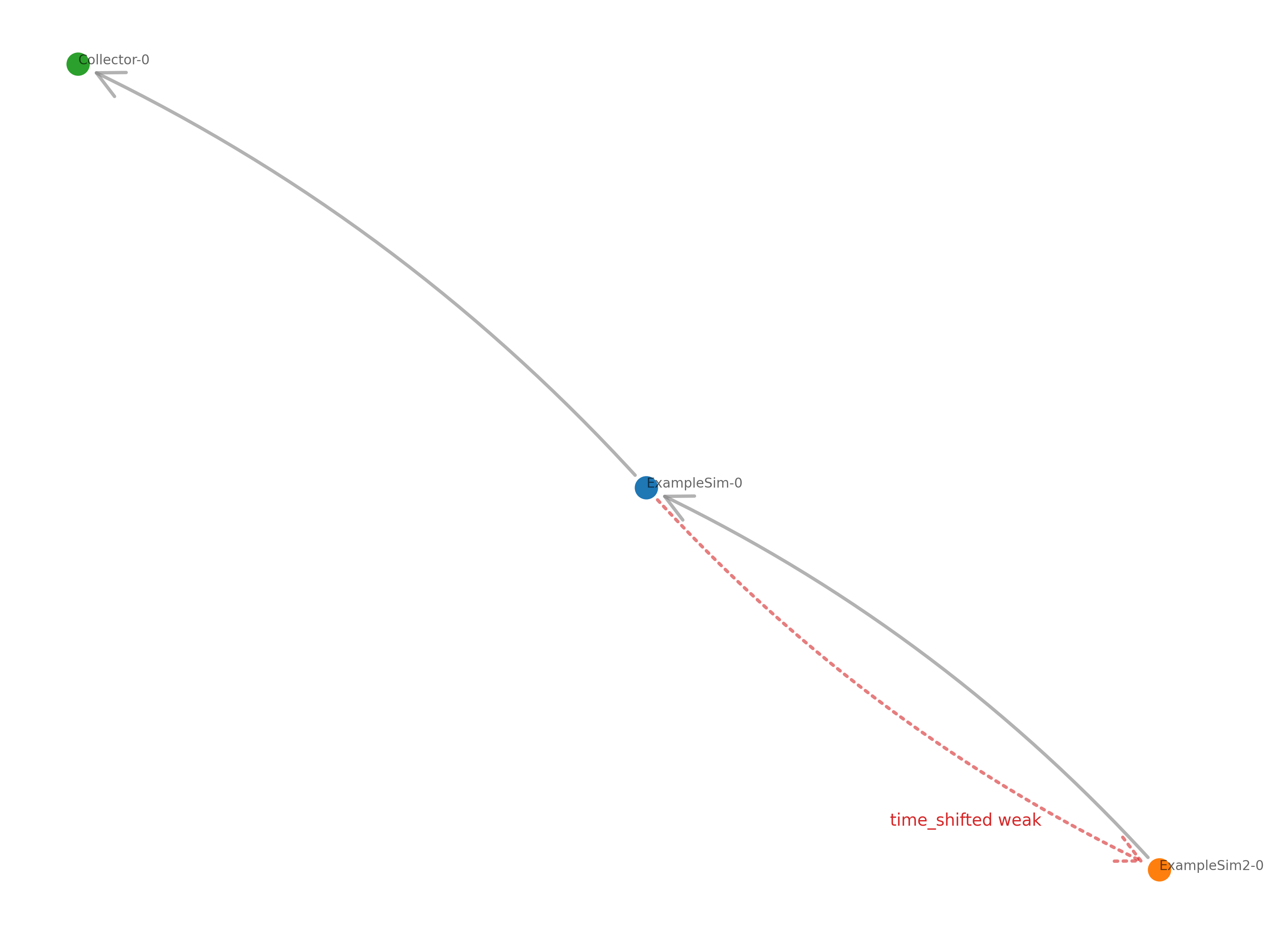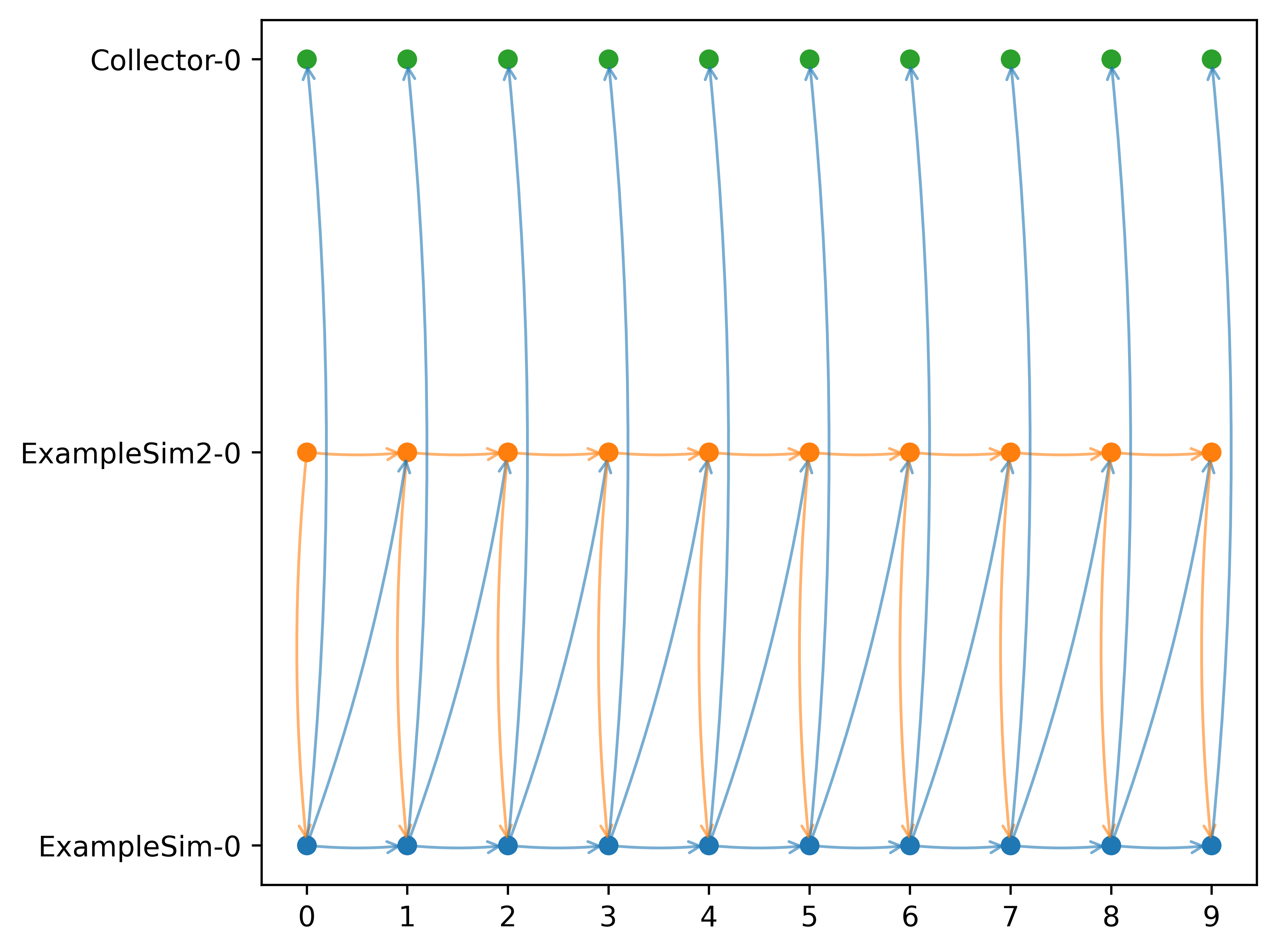mosaik 3.6 released
The mosaik team is overjoyed to announce the release of mosaik 3.6!
This release brings a collection of quality-of-life improvements, clearer error messages, and enhancements to the dataflow graph. Below you’ll find an overview of the most notable additions and fixes.
Improved Dataflow Graph for Groups
Understanding complex simulation setups becomes easier with an improved dataflow graph. mosaik 3.6 enhances how simulator groups are represented, showing you a colored representation of the simulator groups in your scenario. Check out the updated docs for an example visualisation.
Introducing Starters to make adding simulators easier
Our newly introduced _starters_ enable you to add simulators to your world without having to specify them in your SIM_CONFIG. Create an object of one of the starter classes PythonStarter, CmdStarter, or ConnectStarter and then call world.start(starter, sim_id). For example, to start the basic input simulator, you can use
from mosaik.basic_simulators import InputSimulator # … input_sim = world.start(PythonStarter(InputSimulator), “Input”)
This makes it easier to create scenarios with dynamically chosen simulators. If you start all of your simulators like this, you do not need a SIM_CONFIG anymore and you can create your world using World() instead of World(SIM_CONFIG). Of course, this feature is also available for AsyncWorld.
Check out the docs to learn more!
Entity Children Now Provided as a Dictionary
Entity children are exposed as a dictionary instead of a list. This makes lookups easier and avoids manual indexing.
Clearer Warnings and Error Messages
Several long-standing pain points related to confusing or missing warnings have been addressed, making debugging easier.
What’s Next?
mosaik 3.6 focuses on polishing the experience and reducing problems for developers. Although this release is feature-light, it lays groundwork for future extensions!
As always, we invite you to try the new version, explore the improvements, and share feedback or questions on GitHub Discussions.
Happy simulating with mosaik 3.6!


